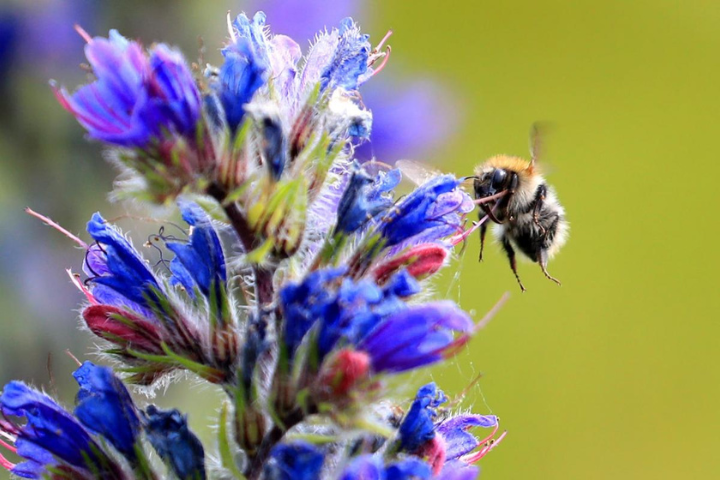There’s an intriguing similarity between human emotions and stressed-out bumblebee behavior, as revealed by a recent Newcastle University study. When presented with negative circumstances, bees, like humans, can also become pessimistic, which can negatively affect their vitality and decision-making. In addition to illuminating these insects’ mental states, this research poses significant queries regarding the ways in which stress impacts pollination, an essential function of these insects. Understanding bees’ emotional responses could have a big impact on conservation efforts because bees are essential to both agriculture and our ecosystems.
The Science Behind Bee Pessimism
For the purpose of the study, bumblebees were trained to link particular colors with rewards. They were taught that some colors denoted higher-quality food sources, while others suggested lower-quality rewards. Once these correlations were established, two groups of bees were subjected to predatory attacks in a controlled environment. The results were startling: stressed bees clearly exhibited a change in expectations as they tended to shun high-reward options and instead flock towards lower-reward locations.
One of the study’s authors, Dr. Vivek Nityananda, observed that this behavior points to the stressed bees having a pessimistic view. He continued, “Our study shows that bees are more pessimistic after stress, as their behavior suggests that they do not expect to get rewards.” This result is consistent with how people psychologically react to stress; when they are nervous or overwhelmed, people tend to see ambiguous circumstances more negatively.
Implications for Pollination and Conservation
These results have consequences that go beyond knowledge of bee behavior; they may have a big influence on pollination dynamics. Stressed bees might be less successful in finding superior flowers, which could result in less efficient pollination of both crops and wild plants. The study’s principal investigator, Dr. Olga Procenko, underlined the significance of identifying emotion-like states in insects, saying, “Our research suggests that bees may experience emotion-like states when stressed, like other animals, including humans.”
Developing measures for bee conservation requires an understanding of how stress impacts bee behavior and cognition. Understanding bees’ emotional responses can help guide efforts to safeguard these vital pollinators as environmental pressures—from habitat loss to pesticide exposure—continue to rise. Subsequent investigations will endeavor to examine the brain processes behind these actions and evaluate if analogous patterns manifest in natural bee populations.




GIPHY App Key not set. Please check settings